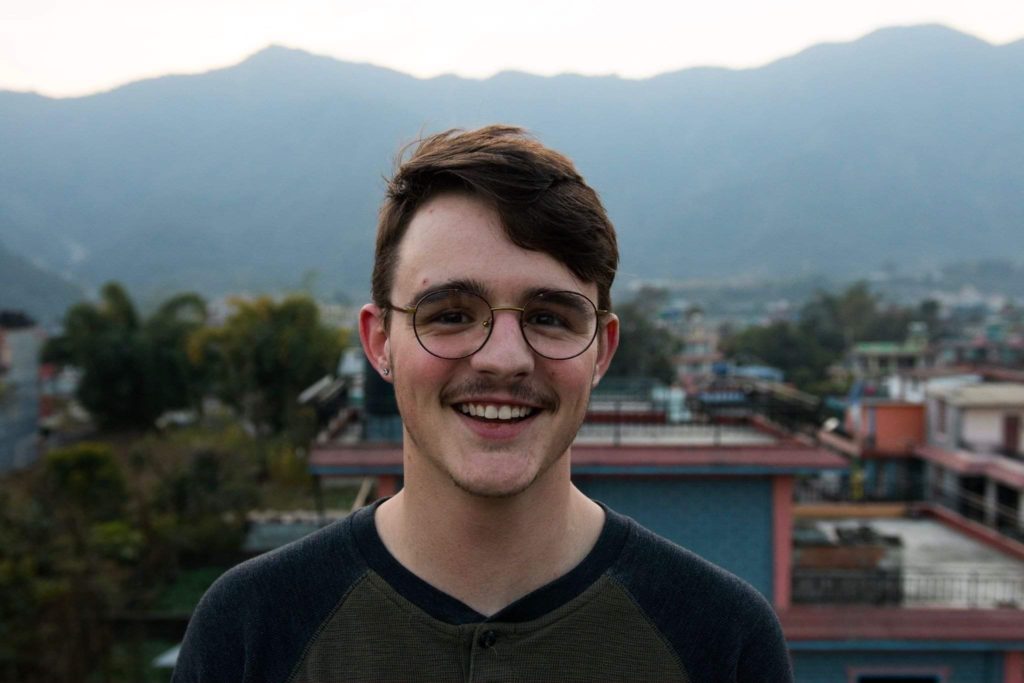
For Mechanical Engineering senior Rustin Jensen, the CSU Extension Internship experience brought engineering out of the classroom and into the real world.
“This internship really opened my eyes to what engineering really means,” Jensen said. “I had gone through classes – heat and mass transfer, differential equations – but you don’t really learn what engineering is until you apply it.”
Jensen’s CSU Extension Internship experience is a modern-day evolution of the land-grant heritage of CSU’s Extension office and the University, putting advances in engineering and agricultural science to work in the wider community.
Applications for the 2021 Extension internships will be accepted Jan. 19 through Feb. 5. Videos and posters of the 2020 internships are featured on the website. The program is open to undergraduate and graduate students.
“Extension and Extension internships extend beyond agriculture and allow students to apply concepts and technologies they have been learning in their classes in real-world applications, working directly with communities and stakeholders,” said Rebecca Hill, agricultural economist in the College of Agricultural Sciences who helps manage the program. “We want students to understand that Extension professionals have skill sets from a broad variety of majors, including engineering.”

The Walter Scott, Jr. College of Engineering supports the CSU Extension internship program to foster engaged/applied research that support students’ professional development, build bridges across campus and Extension, and serve the diverse needs of Colorado stakeholders.
“This opportunity to have students work side-by-side with Extension, often in areas of Colorado they have not visited before, is a wonderful way to learn more about how CSU’s Land Grant mission is realized across the state,” said Sonia Kreidenweis, Associate Dean for Research for the college and University Distinguished Professor. “The internships allow them to explore applied research and community engagement and are a wonderful enhancement to their CSU academic year engineering education.”
The college contributed to funding the internship for Jensen and two additional engineering undergraduate students in 2020. Also participating were:
- Luke Stark, a Civil and Environmental Engineering student who worked with Jensen on low-cost soil moisture sensing and database integration. Both students were mentored by A.J. Brown, assistant director of the Irrigation Innovation Consortium.
- Connor Henderson, a Biomedical Engineering/Chemical and Biological Engineering student who worked on characterizing melon quality. Henderson worked with Extension Specialist Michael Bartolo and others at the CSU Extension San Luis Valley and Rocky Ford research centers – his second Extension internship.
Jensen and Stark joined Professor Jay Ham’s research group, which is developing inexpensive soil moisture sensors for agricultural applications. Jensen built and tested sensor prototypes. His work involved soldering, designing and (3-D) printing parts and enclosures, as well as working in the field at CSU’s Irrigation Innovation Consortium to install and monitor the performance of the sensors.
Growing up in rural Eads, Colorado, Jensen was well aware of the importance of this technology. Though he didn’t grow up on a farm himself, he was on his uncle’s farm nearly every day.

“Research-grade agricultural equipment is pretty expensive. It makes it very difficult for the average farmer to be able to get into the study of their soil and their crops. So the main focus of their lab is to create these low-cost sensors” that will ultimately help farmers improve crop yields and save both water and money, he said.
After his expected graduation in May 2021, Jensen plans to pursue a master’s degree in Mechanical Engineering at CSU’s Powerhouse Energy Campus with Professor Todd Bandhauer, working on system integration in turbocharged engines.
“Regardless of it’s an engine or in ag, it’s about problem-solving,” Jensen said. “This internship really taught me how to apply those skills.”
Beyond the importance of hands-on experience, the internship also helped him refine a vision for his future.
“Through the internship, I realized that research is a big passion of mine. I really like being able to make change happen. So that’s where I want to head. I’m not quite sure how that’s going to play out yet. But I know that in the future, I would love to work on the big problems that need to be solved, and try to create solutions that could impact the world.”